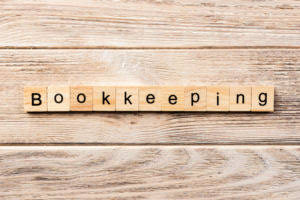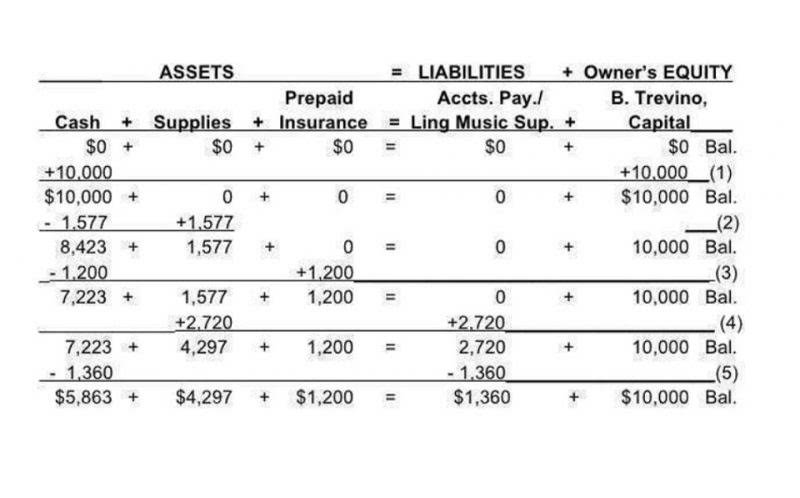Bookkeeping
Keeping Business Records 5 Tips for Thorough Recordkeeping
Once you sync your bank account and credit cards to your accounting program, the software automatically imports your financial transactions. This ensures you’re always working with the most up-to-date numbers as you’re making crucial business decisions. Sage Business Cloud Accounting’s cheapest plan lets you create invoices, track amounts owed, and automatically reconcile your bank accounts. If you’re willing to pay a bit more ($25 a month), Sage Accounting adds unlimited users, quotes, estimates, cash flow forecasting, and purchase invoice management. FreshBooks’s combination of stellar features, customizable invoices, and well-reviewed mobile apps make it pretty much perfect—especially for freelancers. Unlike Xero, FreshBooks lets you send an unlimited number of invoices and estimates with every plan.
What are examples of regulations requiring recordkeeping?
It encompasses a variety of day-to-day tasks, including basic data entry, categorizing transactions, managing accounts receivable and running payroll. Bookkeeping best record keeping for small business is the process of tracking income and expenses in your business. It lets you know how you’re doing with cash flow and how your business is doing overall.
Manage financial statements and documents
More so, up-to-date business records help file return and ensure your business stays tax-compliant. Bank reconciliations help small businesses catch errors and understand their financial position. It’s also the ideal time to make sure you have records for all business transactions.
Principles of Good Recordkeeping
- Check with your accountant, state, or the IRS if you have questions about recordkeeping time periods.
- This is a highly recommended method because it tells the company’s financial status based on known incoming and outgoing funds.
- This indicates 3 years from the date you filed your return or the due date of the tax return, whichever is later.
- At its core, bookkeeping is about recording financial data, while accounting is about interpreting financial data.
- If you’re looking for industry-specific accounting software, Sage some standout solutions beyond Sage Business Cloud Accounting.
- Regulatory authorities such as the Occupational Safety and Health Administration (OSHA), the U.S.
FinancePal is best for small businesses that need bookkeeping assistance, including catch-up bookkeeping, entity formation and tax filing. Small businesses often work with tax advisors to help prepare their tax returns, file them and make sure they’re taking advantage of small-business tax deductions. Though you may not work regularly with a tax specialist year-round, you’ll want to connect with one sooner rather than later so you’re not rushed come tax time.
Cons of Using a Software Program
Here are some of the most frequently asked questions on bookkeeping for small businesses. When you first begin the bookkeeping journey, collect everything you have that could be relevant to establishing financial history. Any business owner knows that keeping financial records and receipts is one of the most important and cumbersome tasks of running a company. There are several unavoidable accounting and bookkeeping tasks that businesses have to do on a regular basis. The bookkeeping apps listed above make it easier and faster to complete these tasks. Although you can access QuickBooks Self-Employed on a desktop or laptop, their mobile app lets you do a lot as well.
Shoeboxed is a receipt scanning and expense management app that allows freelancers and small business owners to keep track of their business expenses in a simple way. This app can help you with your reports by doing some of the work for you. Most financial institutions, including credit card companies and banks, send customers electronic statements, so keeping paper versions on hand may be unnecessary. When it comes to keeping business records, one of the things you need to do is document your transactions through journal entries. These journal entries are the foundation of your small business accounting books.
Should your business use a manual or computer-based recordkeeping system?
Fortunately, small business owners don’t need to be experts in mathematics to find success when doing their own bookkeeping. There are many ways to divide bookkeeping responsibilities and leverage powerful technology and small business accounting software for more accurate expense tracking. All the many features available in QuickBooks Online’s Simple Start (entry-level) plan are available in the QuickBooks app.
- The app supports multiple currencies and has a smart selection of features for very small businesses.
- Wave follows standard accounting rules and is especially skilled at invoicing and transaction management.
- Diligent categorization gives you more accurate reports and income tax returns.
- Take time to back up and secure your records to avoid catastrophe.
- Make sure to tackle your books when your mind is fresh and engaged—say, at the start of the day before you open your doors rather than late at night, after you’ve closed up shop.
- They also make it simple to share your purchases with your accountant.
- When it comes to budgeting for bookkeeping, the difference hinges on whether you hire or manage using software tools.
- She is a former Google Tech Entrepreneur and she holds an MSc in International Marketing from Edinburgh Napier University.
- Instant search tools and customizable reports help you track down the smallest details and see overviews of how your business is performing.
- Hubdoc is a central way to organize all of a small business’s receipts and documents.
- Jami Gong is a Chartered Professional Account and Financial System Consultant.
- Shoeboxed also has a user-friendly web dashboard to upload receipts or documents from your desktop.







